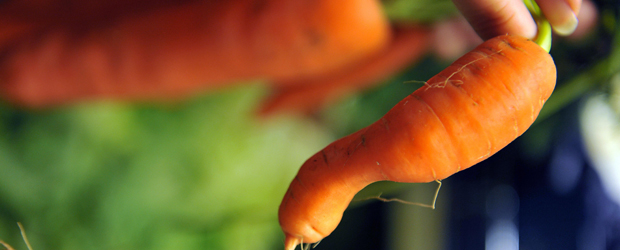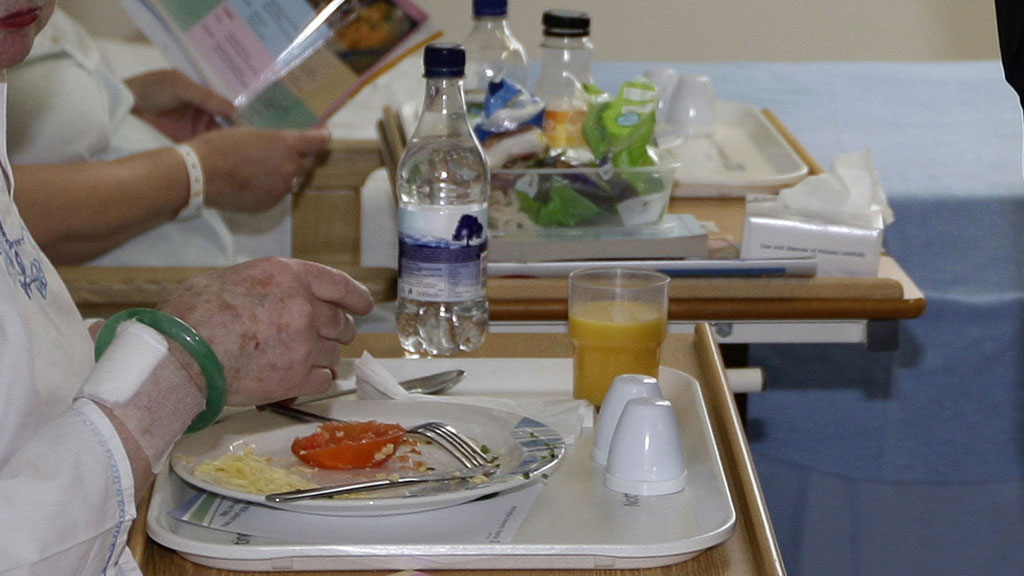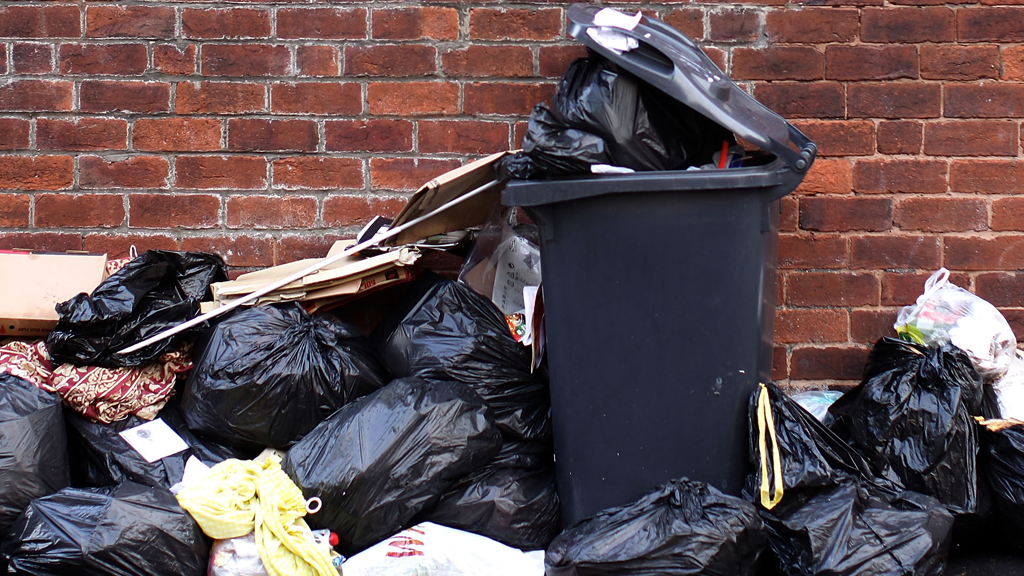Why the supermarket secrecy on food waste?
Britain’s supermarkets generate 300,000 tonnes of food waste every year, but three of the big four refuse to reveal their individual figures. Channel 4 News asks why?

The wonky carrot has become somewhat of a celebrity in the world of food waste.
Supermarkets say consumers won’t buy them when mixed in with their straight, perfectly-shaped peers.
The wonky carrot is responsible for just a fraction of the 300,000 tonnes of food waste generated by supermarkets ever year.
Retailers point out that their food waste is proportionately small compared to the British consumer. As a nation we throw away more than 7 million tonnes annually, at an estimated cost of £450 per family.
But if, as a consumer, you want to compare the supermarkets on food waste – well, you cannot.
Despite frequently boasting about their green credentials Tesco, Asda and Morrison’s refused to tell Channel 4 News how much food waste they generate every year.
Tesco and Asda also refused to explain why they won’t release the figure. Morrison’s claim it is commercially sensitive. All three were adamant they produce very little food waste but would not back up their assertions with evidence.
Campaigner and author Tristram Stuart told Channel 4 News that openness would benefit everyone: “All these big supermarkets should be reporting how much food they waste on an annual basis.
“This would create transparency in the system and competition between supermarkets to appear the least wasteful.”
That is an argument the British Retail Consortium (BRC) does not buy.
The BRC’s Bob Gordon said supermarkets were “sceptical” about how the figures might be used and that they already provide data collectively to the government’s delivery body on waste.
He added: “Retailers wouldn’t deliberately overstock and deliberately throw food away. That would be a cost to their business and they’re trying very hard to minimise those costs from the outset to remain competitive.”
Sainsbury’s is the only one of the big four supermarkets to publish its food waste figures and told Channel 4 News it generated about 44,000 tonnes of food waste in 2011.
The supermarket said none of that ended in landfill with edible food going to charity, while the rest went to animal organisations or anaerobic digestion where waste is turned into electricity or fertiliser.
‘Appalling’ waste
In the middle of London an entire warehouse is dedicated to intercepting supermarket food waste and redistributing it to vulnerable people and community groups.
Fareshare “rescued” 3,600 tonnes of unwanted food last year. The charity recently hosted a series of fundraisers with eco-chef Tom Hunt where 90 guests paid £40 per head for a three course meal made entirely from produce destined for landfill.
The menu included a main course stew of hare, pheasant, squirrel and rabbit which were all game from a shoot and would otherwise have been wasted.
Tom told Channel 4 News he never ceases to be amazed by the quality of produce that is bound for the bin: “It’s absolutely appalling that this food is being thrown away … the quality of the ingredients is second to none.
“I’ve worked in restaurants for the last 13 years and some of the ingredients we’re obtaining are better than any that those restaurants have ever had.”
While most supermarkets do give away edible food to charities like Fareshare campaigners could insist they could be doing more.
Tristram said: “The amount the supermarkets tell us they waste ignores the amount they cause their suppliers to waste.
“They’ve got very good at offloading surpluses onto suppliers – that’s farmers and manufacturers who produce to forecast orders that are very often over estimates and therefore they’re left with surplus that they have to discard.
“Or farmers who grow fruit and vegetables and then have to waste their harvest because they don’t meet the cosmetic standards of supermarkets.”
More on food waste
-

Untouched: the hospital food that goes to waste
11 October 2011
-

Are new bin collection plans a waste of time?
14 June 2011

